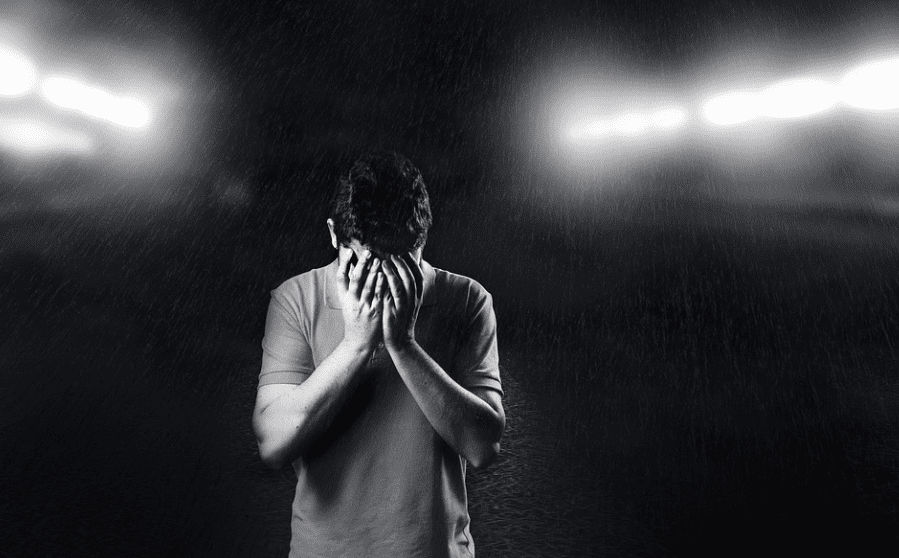Definition of PTSD
PTSD, or Post-Traumatic Stress Disorder, is a mental health condition that can develop in individuals who have experienced or witnessed a traumatic event. It is characterized by a range of symptoms that persist beyond the traumatic event and significantly affect a person’s daily life.
Even so, not everyone who is aware of a traumatic event has PTSD. There are specific criteria used to determine whether a person has PTSD.
PTSD Post-Traumatic Stress Disorder - Symptoms
The symptoms of Post-Traumatic Stress Disorder (PTSD) can vary in intensity and duration, and they typically manifest in three main categories: intrusive symptoms, avoidance symptoms, and arousal and reactivity symptoms. Here are some common symptoms within each category:
1. Intrusive Symptoms:
– Flashbacks: Vivid and distressing recollections of the traumatic event, as if reliving it.
– Nightmares: Recurring and frightening dreams related to the traumatic event.
– Intrusive thoughts: Unwanted and intrusive memories or images of the traumatic event that intrude upon daily life.
– Distress when exposed to reminders: Certain triggers, such as sounds, smells, or sights, that resemble or remind the person of the traumatic event can cause intense distress.
2. Avoidance Symptoms:
– Avoidance of triggers: Deliberate efforts to avoid people, places, activities, or situations that may remind the person of the traumatic event.
– Emotional numbness: Feeling detached or emotionally numb, finding it challenging to experience positive emotions.
– Avoidance of discussing the event: Reluctance or refusal to talk about the traumatic experience or avoid thoughts associated with it.
– Loss of interest: Losing interest or enjoyment in activities that were once pleasurable.
3. Arousal and Reactivity Symptoms:
– Hyperarousal: Feeling constantly on edge, easily startled, or experiencing a heightened state of alertness.
– Irritability and anger: Feeling irritable, having frequent outbursts of anger, or being easily provoked.
– Sleep disturbances: Having trouble falling asleep, staying asleep, or experiencing nightmares.
– Hypervigilance: Being excessively watchful or on guard for potential threats or danger.
– Difficulty concentrating: Finding it challenging to focus, make decisions, or remember things.
4. Cognitive and Mood Symptoms:
– Negative thoughts and beliefs: Developing negative thoughts about oneself, others, or the world. Feeling hopeless or experiencing a distorted sense of blame or guilt.
– Memory problems: Having difficulty recalling important aspects of the traumatic event.
– Emotional distress: Feeling intense guilt, shame, fear, or sadness.
– Diminished interest in activities: Losing interest in previously enjoyed activities or feeling detached from others.
– Feeling detached or estranged: Feeling disconnected from others, experiencing a sense of isolation.
It’s important to note that not everyone with PTSD will experience the same symptoms, and the severity and duration of symptoms can vary from person to person.
PTSD Causes
Post-Traumatic Stress Disorder (PTSD) can be caused by experiencing or witnessing a traumatic event. The development of PTSD is influenced by various factors, including:
1. Traumatic Event: The primary cause of PTSD is exposure to a traumatic event that involves actual or threatened death, serious injury, or sexual violence. Examples of such events include:
– Military combat and warfare
– Physical or sexual assault
– Natural disasters (e.g., hurricanes, earthquakes)
– Serious accidents (e.g., car accidents, plane crashes)
– Childhood abuse or neglect
– Witnessing violence or traumatic events
2. Individual Factors: The likelihood of developing PTSD can be influenced by individual factors, such as:
– Previous trauma: Having a history of prior traumatic experiences can increase vulnerability to developing PTSD.
– Personal coping styles: Individuals who have less effective coping mechanisms or limited social support networks may be at higher risk.
– Pre-existing mental health conditions: People with pre-existing anxiety or mood disorders may be more susceptible to developing PTSD.
– Genetic factors: Some evidence suggests that certain genetic factors may contribute to the risk of developing PTSD.
3. Severity and Duration of the Trauma: The severity and duration of the traumatic event can also impact the likelihood of developing PTSD. Events that are more severe, life-threatening, or prolonged are generally associated with a higher risk.
4. Lack of Social Support: Supportive relationships and social networks can provide a protective factor against the development of PTSD. Limited access to support or a lack of positive social connections may increase the risk.
5. Neurobiological Factors: Research indicates that alterations in brain areas involved in stress response, such as the amygdala and prefrontal cortex, may contribute to the development of PTSD. These neurobiological changes can affect how individuals process and respond to traumatic memories.
PTSD Treatments
Treatment for Post-Traumatic Stress Disorder (PTSD) typically involves a combination of psychotherapy, medication, and self-help strategies. The goal of treatment is to reduce the intensity of symptoms, improve daily functioning, and promote overall well-being. Here are some common approaches to PTSD treatment:
1. Psychotherapy:
– Cognitive Behavioral Therapy (CBT): CBT helps individuals identify and modify negative thought patterns and behaviors associated with the traumatic event. It may include techniques such as exposure therapy, where individuals confront their fears in a safe and controlled manner, and cognitive restructuring, which aims to challenge and reframe distorted beliefs.
– Eye Movement Desensitization and Reprocessing (EMDR): EMDR combines elements of CBT with bilateral stimulation (such as eye movements, taps, or sounds) to help individuals process and reframe traumatic memories and reduce distressing symptoms.
– Group Therapy: Participating in group therapy provides a supportive environment where individuals can share their experiences, learn coping skills, and gain validation from others who have gone through similar traumas.
– Family Therapy: Involving family members in therapy can improve communication, support, and understanding within the family system, enhancing the individual’s recovery process.
2. Medications:
– Selective Serotonin Reuptake Inhibitors (SSRIs): These antidepressant medications, such as sertraline or paroxetine, may help alleviate symptoms of depression, anxiety, and intrusive thoughts associated with PTSD.
– Prazosin: This medication may be prescribed to help reduce nightmares and improve sleep disturbances commonly experienced in PTSD.
– Other medications: In some cases, other medications, such as benzodiazepines or antipsychotics, may be prescribed to address specific symptoms or co-occurring conditions. However, their use is typically cautious and closely monitored due to potential side effects and risks.
3. Self-Help Strategies and Lifestyle Changes:
– Self-care: Engaging in self-care activities like regular exercise, healthy eating, adequate sleep, and stress reduction techniques (e.g., deep breathing, meditation) can support overall well-being and symptom management.
– Social support: Building and maintaining a strong support network of friends, family, or support groups can provide understanding, empathy, and encouragement throughout the recovery process.
– Avoidance of substances: Substance use can worsen PTSD symptoms, so avoiding or minimizing the use of alcohol, drugs, and other substances is crucial.
– Education: Learning about PTSD, its symptoms, and available treatment options can empower individuals to better understand and manage their condition.
It’s important to consult with a mental health professional who specializes in trauma and PTSD to determine the most appropriate treatment approach for an individual’s specific needs. Treatment plans are often personalized based on the severity of symptoms, co-occurring conditions, and individual preferences.






